Specialist Doctor 1 Bui Thi Yen Nhi, University of Medicine and Pharmacy Hospital, Ho Chi Minh City - Facility 3 said that garlic has a long history of use in many different cultures to treat diseases, including respiratory problems, cardiovascular problems, infections, skin diseases,...
What are the heart benefits of garlic?
The World Health Organization (WHO) also recognizes that garlic is not only used as food, but also as one of the traditional medicines of traditional medicine in the world.
Doctor Yen Nhi said that garlic has a spicy taste and warm properties, which help to promote the flow of qi, reduce stagnation, warm the stomach and strengthen the spleen, help detoxify and reduce swelling, kill parasites, prevent dysentery, clear the air, eliminate stagnation, digest food, warm the stomach, and strengthen the spleen. According to pharmacological studies, the active ingredients in garlic (especially allicin) can help improve the body's immunity, fight bacteria and viruses, thereby supporting the treatment of diseases related to respiratory tract infections and flu.
Additionally, a study published in the journal JAMA in 2020 noted that garlic powder may reduce the incidence of stomach cancer (especially in people who drink alcohol).
In the cardiovascular system, research has shown garlic's effects in lowering blood pressure, lowering blood lipids, and preventing atherosclerosis.
"Although research shows that garlic has benefits in lowering blood pressure, there is no scientific evidence that garlic can replace commonly prescribed blood pressure medications. Research evidence is limited and inconsistent, so reputable cardiovascular associations do not recommend using garlic to treat high blood pressure," said Dr. Nhi.
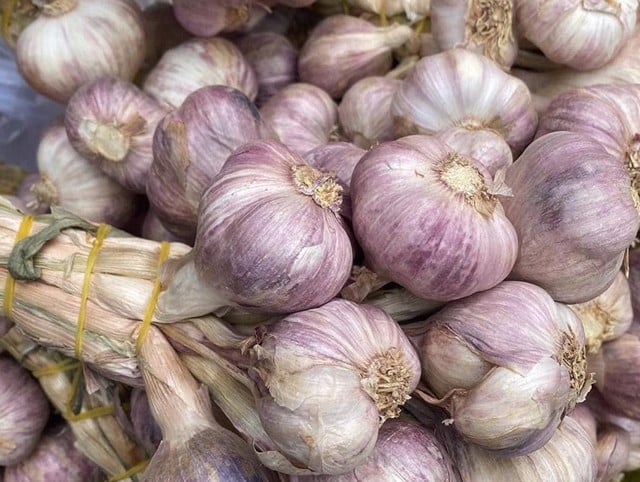
Garlic has many benefits for the heart, but there are no recommendations for using it as a substitute for medicine.
PHOTO: LC
What should I pay attention to when using garlic?
Eat in moderation . According to Dr. Yen Nhi, you should eat 1-2 cloves of raw garlic every day. Although garlic is very good, the more you eat, the better. Eating too much garlic can irritate the lining of the stomach and intestines and cause discomfort such as belching, heartburn, and bad breath. Therefore, you should use garlic in moderation in your daily diet and can choose to eat it raw or cooked depending on your needs and health status.
Garlic can increase the risk of bleeding . Therefore, be careful when using garlic for groups of patients such as stomach ulcers, cirrhosis, blood clotting disorders, people taking anticoagulants, etc. You should consult your doctor to avoid worsening the condition or drug reaction, or stop using it to perform procedures or surgery.
"Garlic is a food that supports cardiovascular health, but cannot replace medicine. To control blood pressure and blood lipids, you need to follow your doctor's prescription, eat a low-salt diet, reduce bad fats, increase green vegetables and fruits, exercise 30 minutes a day, maintain an ideal weight, and have regular check-ups to monitor your health. If you want to add garlic to your diet, consult your doctor to ensure safety and suitability for your condition," Dr. Nhi recommends.
Source: https://thanhnien.vn/bo-thuoc-dung-toi-de-ha-huyet-ap-nen-hay-khong-185250623224244773.htm




![[Photo] Prime Minister Pham Minh Chinh and his wife meet the Vietnamese community in Algeria](https://vphoto.vietnam.vn/thumb/1200x675/vietnam/resource/IMAGE/2025/11/19/1763510299099_1763510015166-jpg.webp)
![[Photo] General Secretary To Lam receives Slovakian Deputy Prime Minister and Minister of Defense Robert Kalinak](https://vphoto.vietnam.vn/thumb/1200x675/vietnam/resource/IMAGE/2025/11/18/1763467091441_a1-bnd-8261-6981-jpg.webp)
![[Photo] The Standing Committee of the Organizing Subcommittee serving the 14th National Party Congress meets on information and propaganda work for the Congress.](https://vphoto.vietnam.vn/thumb/1200x675/vietnam/resource/IMAGE/2025/11/19/1763531906775_tieu-ban-phuc-vu-dh-19-11-9302-614-jpg.webp)



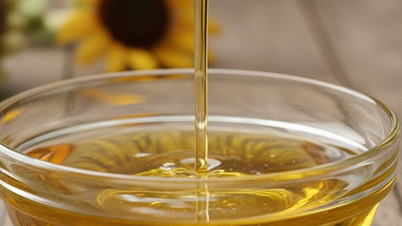
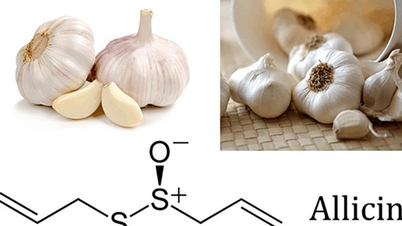

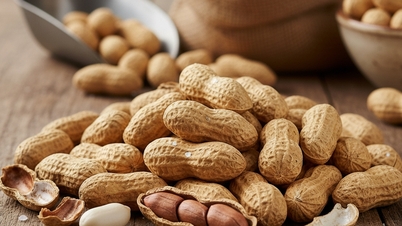








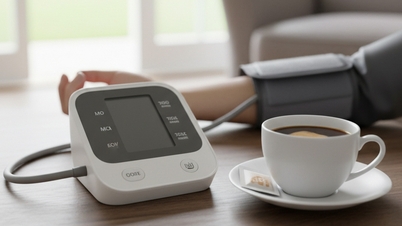






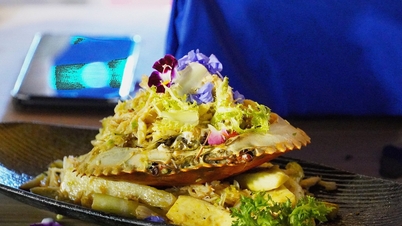




![[Photo] General Secretary To Lam receives CEO of AP Moller-Maersk Group, Denmark](https://vphoto.vietnam.vn/thumb/1200x675/vietnam/resource/IMAGE/2025/11/18/1763462288958_a3-bnd-8222-2510-jpg.webp)
















































































Comment (0)